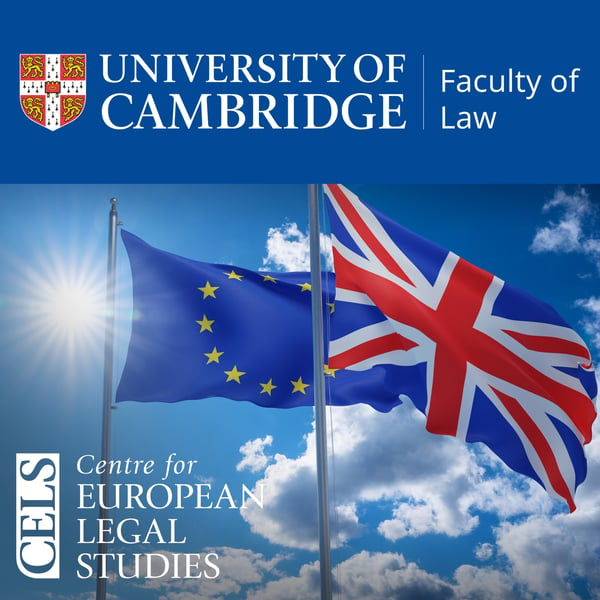'Session 1: Free Movement of Persons and Establishment' - Martin Steinfeld: CELS Brexit Symposium
Cambridge Centre for European Legal Studies (CELS) Podcast
Faculty of Law, University of Cambridge
0 • 0 Ratings
🗓️ 14 March 2019
⏱️ 29 minutes
🧾️ Download transcript
Summary
Transcript
Click on a timestamp to play from that location
| 0:00.0 | So hello everybody. |
| 0:05.0 | I am going to cover this policy paper for in a second. |
| 0:15.0 | So to certain extent what can I do that can really add to anything that Professor Sperventa has just said? |
| 0:21.6 | I'll try my best. |
| 0:24.6 | The UK government has consistently attempted to provide reassurance for citizens' rights. |
| 0:31.6 | The analogy I'm about to use, I can't, since I'm utterly useless at drawing, I can't actually draw it. |
| 0:36.6 | It's essentially |
| 0:37.5 | like one of these spinning wheels at a casino with people's lives. Perhaps my motivation for this, |
| 0:45.5 | and it's interesting, my college's HR manager is very interested in this, are the thousands of |
| 0:52.8 | somewhat banal emails that have been sent out by HR managers |
| 0:57.2 | throughout the country to try and give some kind of reassurance to EU citizens within the |
| 1:02.9 | United Kingdom. In addition, there is the minor matter of what I shall call the UK 27, so UK nationals and the other 27 member states. |
| 1:14.4 | So my focus to a certain extent will be essentially on what the UK government has said and done. |
| 1:21.7 | The backdrop to this is inevitably going to end up with two things really, |
| 1:27.6 | reference to the withdrawal agreement |
| 1:29.0 | and the so-called settled status guarantee |
| 1:31.6 | that has been made by the UK government. |
| 1:38.1 | I suppose it's worth going into a little bit of the history of this, |
| 1:41.9 | so you may remember that citizens' rights were |
| 1:44.9 | guaranteed under the first phase of negotiations in December of 2017. This was something that was |
| 1:53.6 | relatively straightforwardly agreed in principle. This then fed into the draft withdrawal agreement |
| 1:59.8 | that was initially proposed by the Commission in February of last year, at the end of February, which after lots of discussion between White and civil servants and the Commission, via the Chequers' discussion of the UK Cabinet, appears to have kept, for the most part, the original proposal |
... |
Please login to see the full transcript.
Disclaimer: The podcast and artwork embedded on this page are from Faculty of Law, University of Cambridge, and are the property of its owner and not affiliated with or endorsed by Tapesearch.
Generated transcripts are the property of Faculty of Law, University of Cambridge and are distributed freely under the Fair Use doctrine. Transcripts generated by Tapesearch are not guaranteed to be accurate.
Copyright © Tapesearch 2025.

